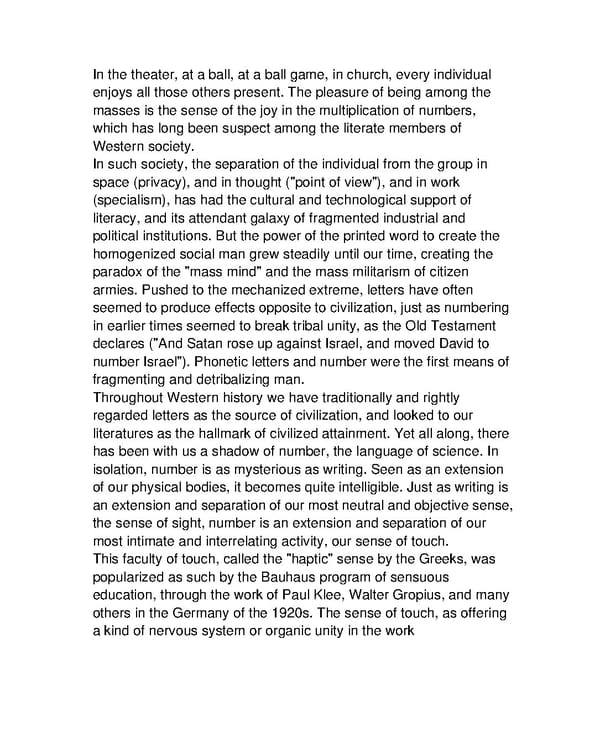In the theater, at a ball, at a ball game, in church, every individual enjoys all those others present. The pleasure of being among the masses is the sense of the joy in the multiplication of numbers, which has long been suspect among the literate members of Western society. In such society, the separation of the individual from the group in space (privacy), and in thought ("point of view"), and in work (specialism), has had the cultural and technological support of literacy, and its attendant galaxy of fragmented industrial and political institutions. But the power of the printed word to create the homogenized social man grew steadily until our time, creating the paradox of the "mass mind" and the mass militarism of citizen armies. Pushed to the mechanized extreme, letters have often seemed to produce effects opposite to civilization, just as numbering in earlier times seemed to break tribal unity, as the Old Testament declares ("And Satan rose up against Israel, and moved David to number Israel"). Phonetic letters and number were the first means of fragmenting and detribalizing man. Throughout Western history we have traditionally and rightly regarded letters as the source of civilization, and looked to our literatures as the hallmark of civilized attainment. Yet all along, there has been with us a shadow of number, the language of science. In isolation, number is as mysterious as writing. Seen as an extension of our physical bodies, it becomes quite intelligible. Just as writing is an extension and separation of our most neutral and objective sense, the sense of sight, number is an extension and separation of our most intimate and interrelating activity, our sense of touch. This faculty of touch, called the "haptic" sense by the Greeks, was popularized as such by the Bauhaus program of sensuous education, through the work of Paul Klee, Walter Gropius, and many others in the Germany of the 1920s. The sense of touch, as offering a kind of nervous system or organic unity in the work
 Understanding Media by Marshall McLuhan Page 120 Page 122
Understanding Media by Marshall McLuhan Page 120 Page 122